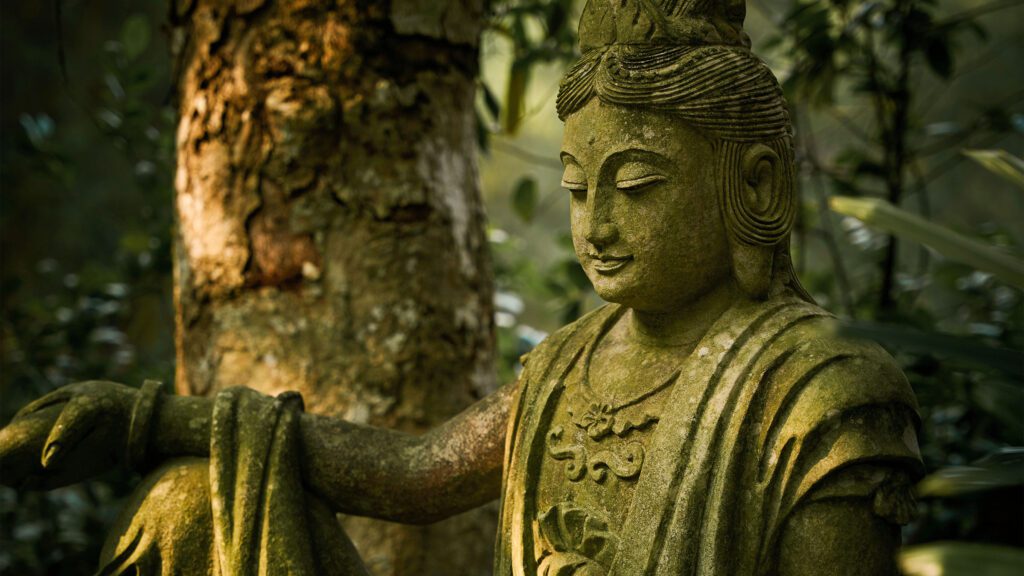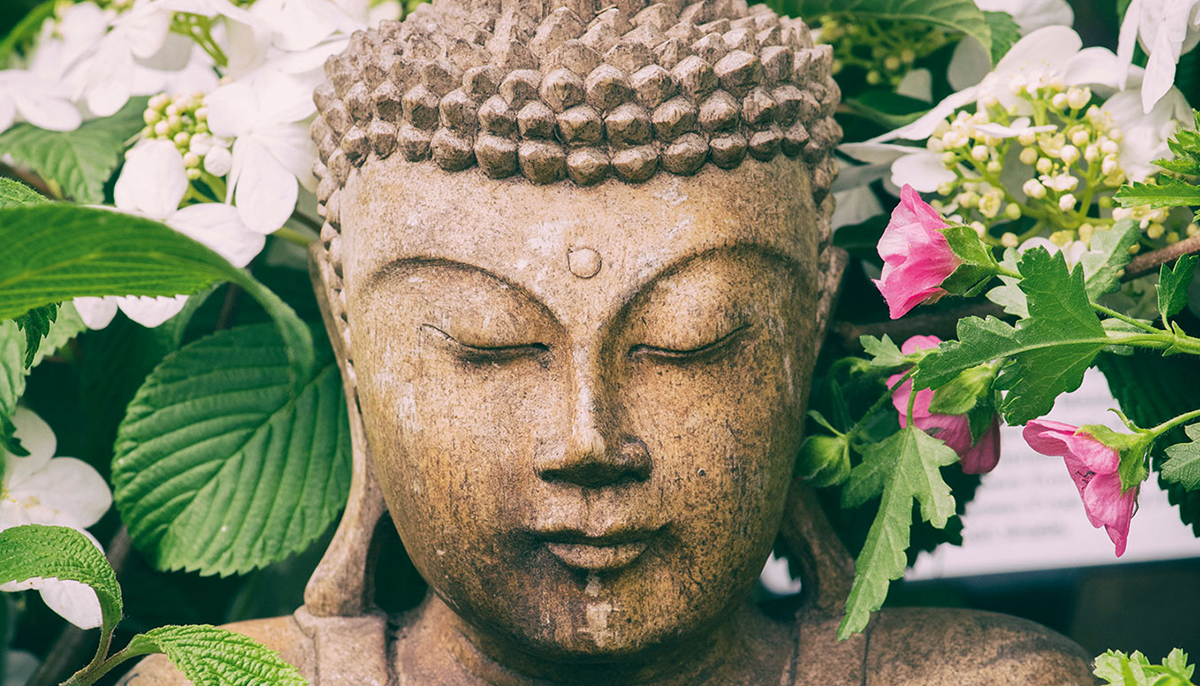Open your window when you meditate, or go outside and get very comfortable. Bring your comfy chair, your blanket. Make it easy for yourself to feel warm and safe. And then, let gravity hold you in its gentle embrace. Let the elements move through you. Feel how the sounds of the birds and the wind are not just outside of you, but can be sensed throughout your body. The earth is welcoming you in.
A lot of us feel uncomfortable in nature because we believe we don’t belong. We think ourselves to be separate—superior or inferior—to the natural world. We forget that humans and nature are inseparable. We forget that everything we do is natural, even online shopping and deforestation. Every little thing we think and feel is the result of an infinitely grand sequence of events that started way before our existence. But because we believe we don’t quite fit in here, we get crushed under a sense of shame or self-righteousness and cannot heal from the guilt, greed, or fear that drives it.
“Mindfulness is not about trying to change how you feel. It’s about honoring the naturalness of exactly what you’re feeling.”
As a young person, I considered myself to be a backpacking, tree-hugging, recycling nature lover. So, when the pandemic hit and my plan to do a year of retreat at a group retreat center got dashed, I was excited to instead spend a year by myself in a small cabin, off the grid, in the mountains of Colorado.
I figured my practice could only benefit from so much time in nature. My body was exhausted from having chronic Lyme disease, and going outside and letting the wind blow through me felt like a deep and healing cleanse.
What I didn’t realize was that as much as I loved nature, I was afraid of it. Deep down, I knew that nature was wild and unpredictable. Though it looked like nature and I were having a love affair, I was really trying to prove that I could tolerate whatever she threw my way. My time in nature was often an attempt to prepare myself for a lonely, painful death in the face of her wrath.
In October 2020, my husband (bless his soul) dropped me off at my cabin, and I watched through tears as his car turned a corner and drove out of sight down the rocky access road. I wanted this, or so I’d thought. I’d wanted to get away from my fellow humans, with the overwhelming, intractable mess we’d made on this planet, and just be in my own little world—where I could figure out how to heal my body, my mind, and, hopefully, the earth. But for the first time in my practice, I found myself completely unable to focus.
After some weeks, it became apparent that I thought myself an unwelcome guest in that beautiful place. The huge mountains, ponderosas, birds, and ants—everything seemed to fit neatly into the web of life except the “unnaturalness” of my human activity. I was getting groceries delivered, generating garbage, and burning propane to cook my food. As tiny as I tried to make my footprint, I couldn’t make it disappear.
As the months ticked by, I felt increasingly confused and lost. My routine devolved from sitting and walking into lying in bed, pacing, and sobbing. At some point, I couldn’t remember the last time I’d gone a day without crying.
When the weather turned warmer, I put out a simple hummingbird feeder that I’d made from an empty spice jar, and hummingbirds started frequenting it. Eventually one of them built a nest right near my porch. I named her Emma. She laid two eggs and sat on them constantly. She also became extremely territorial over the feeder, and whenever another hummingbird came near it, Emma would attack, ruthlessly. Sometimes I saw hummingbirds with chunks of feathers missing, or a bloody wound on their neck.
I felt oddly inspired by Emma. For a long time, I believed mindfulness was about trying to train yourself to be more equanimous by pretending to be calm. I’d spent years forcing myself to be okay with things I wasn’t. In reality, I hated myself for feeling uncomfortable, scared, or anything other than cool and collected. Watching Emma, unapologetic in her fierce maternal protection, helped me trust myself.
Mindfulness is not about trying to change how you feel. It’s about honoring the naturalness of exactly what you’re feeling and letting it have its life for as long as it needs to. All of it is nature. It all belongs. It all has a place in the fabric of life.

This doesn’t mean that we stop practicing restraint, nor does it mean that we’re not different from other animals. In fact, it’s our ability to observe our own minds, and in turn make choices that don’t create more suffering, that makes us unique as a species. The invitation is for us to open to the naturalness of what’s happening in our minds, with compassion and interest, without judging it.
So, when practicing in nature, if you start feeling fearful, guilty, irritated, or distracted, be honest about it. Don’t try to change it. The squirrels don’t judge themselves for being twitchy. The coyotes don’t self-flagellate for guarding their territory. Instead of seeing your thoughts and feelings as untrustworthy or wrong, honor them as a part of what belongs in this moment, in this place. Allow yourself to feel it in your body, and let it be held by the earth beneath you, letting it move and breathe both in and around you.
Step outside and come home. When you practice in nature, unwanted and unexpected things happen frequently. But nature has an ancient steadiness that can hold you if you let it. Find what grounds you—your feet on the earth, the sound of the wind, looking at the sky. From here, gently turn toward the things you normally contract against. Open yourself to the wind, the temperature changes, the moisture. Notice how life and death are all mixed up together, how they need each other. Remember this when a pleasant experience you’re having ends, or an unpleasant one begins. The world beckons you to let go.
I’m still unpacking that solitary retreat I went on, but one thing I now know is this: There’s another way of approaching life on this planet other than from a place of being broken and wrong. This is not to deny the pain of the world, or the hand we have in it. It’s to care for the pain, and to know the goodness that underlies it—the yearning to be safe, to be happy, and to belong—the same things that all life yearns for. This goodness is at the heart of who we are and what ties us together. When we live from this unbroken place, we begin to live fully.

